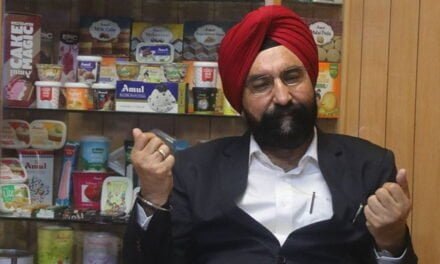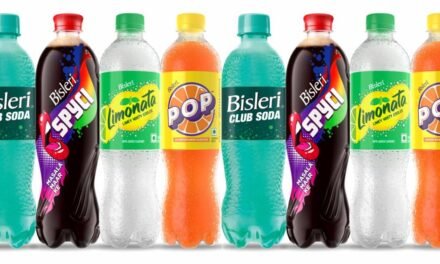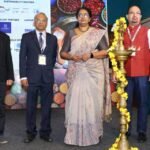The Authority appreciates the efforts of Civil Society Organisations like CSE to promote awareness among customers about food safety and standards, and will utilise the findings of this investigation to bring about any improvements in the food safety ecosystem regarding adulterated honey that is found necessary.
The Food Safety and Standards Authority of India (FSSAI) has taken note of Centre for Science and Environment (CSE) investigation on adulterated honey. The Authority appreciates the efforts of Civil Society Organisations like CSE to promote awareness among customers about food safety and standards, and will utilise the findings of this investigation to bring about any improvements in the food safety ecosystem regarding honey that are found necessary.
One of the points raised in this investigation is about the non-prescription of Trace Marker for Rice syrup (TMR) for detecting adulteration of rice syrup in honey. Given the fact that a more sensitive Specific Marker for Rice syrup test (SMR) has already been made mandatory and is a more focused test to detect adulteration of rice syrup in honey, it was felt by scientific experts that TMR is not necessary. This view was concurred by the Ministry of Agriculture, and hence, TMR has not been made mandatory as a test method.
Regarding the utility and desirability of NMR for honey testing, it seems that NMR allows rapid, but database-driven detection and quantification of various chemical compounds, especially for authenticating the origin of a sample of honey. The prior existence of a database is a necessity for effective utilisation of this technique. No such database exists at present for Indian honey, and hence, NMR testing will have limited utility. The cost of conducting an NMR test is also relatively high and the volumes available at present would not be sufficient to motivate laboratories to invest in this high-end equipment.
Because of the lack of database, high skill requirement, high operating cost and high capital investment, the scientific panel has opined that NMR is not required at this juncture. The scientific panel has also pointed out that India, of all the countries across the globe, as well as the Codex Alimentarius Commission, has the most stringent standards for honey. It may be added here that almost no food regulator in the world has so far mandated NMR as a test method for honey.
CSE has pointed out that FSSAI has issued instructions for checking adulterated honey with golden syrup, invert sugar syrup, and rice syrup. CSE has opined that this is an erroneous order because nowadays companies are using fructose syrup to adulterate honey. FSSAI had issued the said instructions in this regard last year on 23 December 2019, for the first time, based on a request from the Ministry of Agriculture, which had suggested that these imported syrups are being used for adulteration of honey. Action is required to prevent adulteration from various sources, and hence this order is not erroneous but is a part of our ongoing efforts to prevent adulteration of honey.
As far as detection of fructose is concerned, the scientific team in FSSAI believes that the currently prescribed method, EA – LC-IRMS, is as sensitive as NMR, if not better, for detecting fruit origin sugars. The parameters related to isotropic ratio and foreign oligosaccharides are meant for the detection of individual fruit sugars. The isotropic ratio and foreign oligosaccharides, coupled with C3 and C4 sugar detection, can easily determine fruit origin sugars.
It is not clear as to why some tests like SMR have not been conducted on the samples spiked with adulterants by CSE. FSSAI has requested details of the samples and the tests conducted by CSE. As soon as more information become available, they will be analysed by FSSAI to conclude the protocols followed and suggest any improvements that are required in the test methodology for the future.
We would like to remind our readers that CSE had found 77 percent of the samples adulterated with the addition of sugar syrup in their study. Out of the 22 samples checked, only five passed all the tests. “Honey samples from leading brands such as Dabur, Patanjali, Baidyanath, Zandu, Hitkari and Apis Himalaya, all failed the NMR (Nuclear Magnetic Resonance) test,” the CSE study said.
According to the Centre for Science and Environment, almost all the top brands passed the tests of purity. In contrast, a few smaller brands failed the tests to detect C4 sugar — it is the basic adulteration using cane sugar.
The CSE also claimed that it tracked down Chinese trade portals which were advertising fructose syrup that can bypass tests to check adulteration. It also found that the same Chinese companies that advertised this fructose syrup that can beat C3 and C4 tests were also exporting it to India.
Photo created by freepik
















